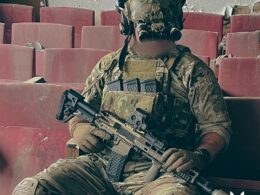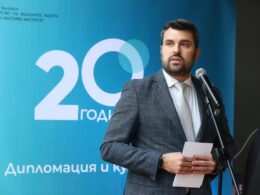Ukraine will cede 20% of its territory to Russia, peace will be guaranteed by the word of Russian dictator Putin and multinational forces without American participation. Neither the US nor NATO will be obligated to defend Ukraine if Russia attacks again, according to The Telegraph.
On 12 February, Trump announced the start of negotiations with Moscow to end Russia’s war in Ukraine, following calls with Russian ruler Vladimir Putin. His statement triggered a wave of criticism, as experts warned that it could be a ceasefire on Putin’s terms with a lack of security guarantees for Ukraine, especially after US Secretary of Defense Pete Hegseth called Ukraine’s NATO membership aspirations “unrealistic.” This conversation also stirred concerns in Europe, as its representatives were not involved in the negotiations. Amid uncertainty about whether the US will lead to a weakening of NATO due to its increasingly isolationist stance, many media outlets and analysts have labeled this strategy as a victory for Russia.
What shocked European governments the most was that Trump and Putin appear to have agreed on such a plan without consulting anyone else.
"Bastards," said one British military official about the Americans after hearing of such a plan.
Journalists recall that although Ukrainian President Volodymyr Zelenskyy met with Vice President J.D. Vance, it was still too late, as it was clear that real actions had already taken place between Trump and Putin.
The report notes that the end of the war, as described by Pentagon chief Pete Hegseth, looks as follows: a return of Ukraine to its 2014 borders would be "unrealistic," and Russia would not need to return Ukrainian lands it has seized. This implies freezing the front line at the position it holds at the time of any peace agreement.
"So both sides now have an urgent incentive to fight as hard as possible for the next days and weeks and grab what land they can," says the report.
Journalists suggest that there will be territorial bargaining. Ukraine may propose exchanging land in the Kursk Oblast for a piece of Kharkiv Oblast, but even with this, the Kremlin will still receive 20% of Ukrainian land.
The publication notes that although US special representative for Ukraine Keith Kellogg stated that "Minsk 3.0" will not happen, the Minsk agreements still provide some idea of what any new treaty might require from the warring parties.
To begin with, the front line will be frozen along the line of contact, and both sides will be required to withdraw heavy weaponry from the zone.
A European security guarantee also seems impossible. Former NATO Secretary General Anders Fogh Rasmussen estimated that the number of troops needed to guard the ceasefire line would be between 50,000 and 100,000. Former head of the British Army, Lord Dannatt, doubted his country's ability to provide enough troops for this mission.
In this regard, the report says that Trump has yet to answer the most crucial question—how to prevent the resumption of war.
British military officials stated that Americans could be persuaded to provide air cover for peacekeeping forces in exchange for access to Ukraine's mineral resources.
At the same time, Putin has always made it clear that he is not just interested in a ceasefire but in a permanent settlement that would involve Ukraine’s subjugation and a rewritten European security order.
"Across Europe and the world, away from the battlefield, it is then, a moment of historic proportions. Yet the one place Trump’s phone call with Putin has not made much impression is at the front itself," explains the report.
Meanwhile, in the trenches, what is happening in Munich does not matter, said a mortar commander, Mykhailo. He noted that near the Toretsk area, the Russians are still attacking while Ukrainians are trying to hold them back, and when the Russians gather enough manpower and equipment for another major offensive, the assault begins again.
"Perhaps suitably, these are the tactics of the Great War. Beyond the trenches, as a century ago, great imperial powers are assembling to cut a deal and establish broad spheres of influence beyond. Now, as then, the world will wait to see whether the outcome is stability—or calamity," concludes the report.
Related:
- WSJ: Russia’s new intel dept orchestrates attacks across Europe
- European leaders to hold emergency summit on Ukraine as Trump pushes for talks with Russia
- Polish FM: Macron convenes European leaders to discuss Trump’s actions
- ISW: Estonia warns of Russia’s military buildup beyond war in Ukraine
- NATO tests European deployment capabilities without US participation





